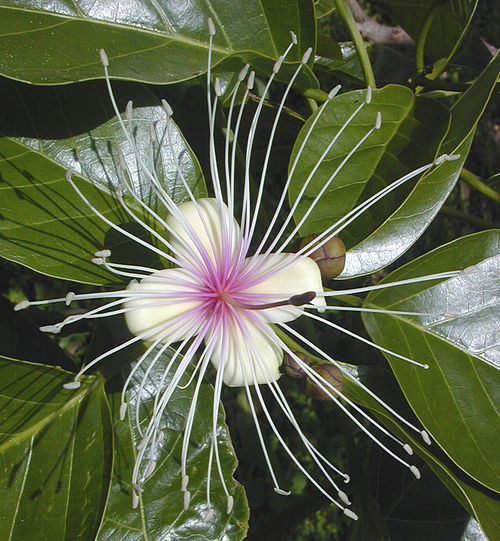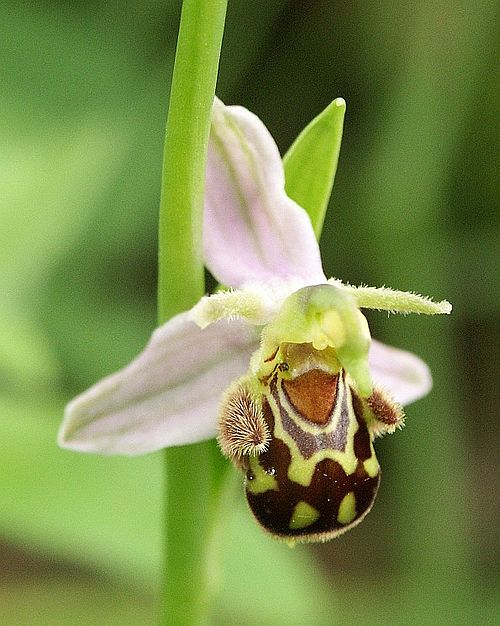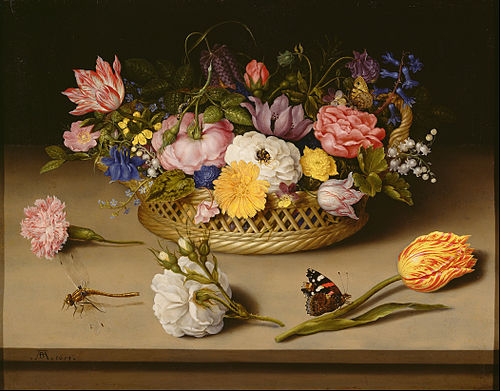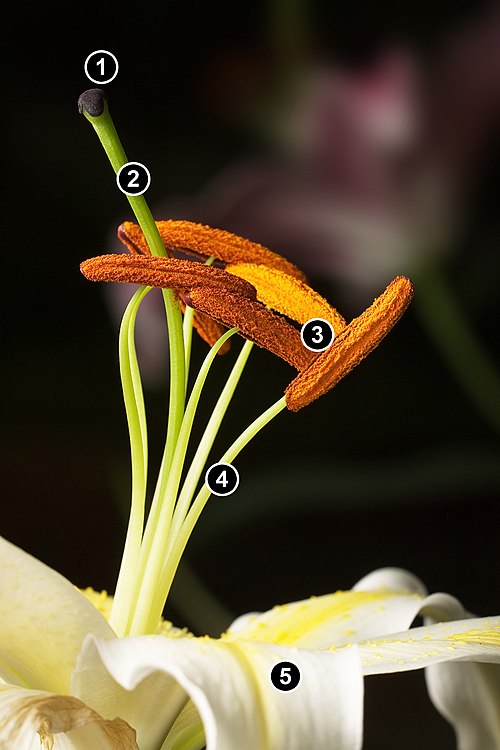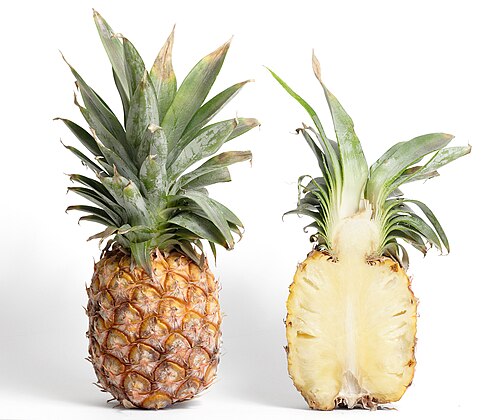Flowernoun
A colorful, conspicuous structure associated with angiosperms, frequently scented and attracting various insects, and which may or may not be used for sexual reproduction.
Flowernoun
(botany) A reproductive structure in angiosperms (flowering plants), often conspicuously colourful and typically including sepals, petals, and either or both stamens and/or a pistil.
Flowernoun
A plant that bears flowers, especially a plant that is small and lacks wood.
Flowernoun
(usually with in) Of plants, a state of bearing blooms.
Flowernoun
The vulva, especially the labia majora.
Flowernoun
(idiomatic) The best examples or representatives of a group.
Flowernoun
The best state of things; the prime.
Flowernoun
(obsolete) Flour.
Flowernoun
A substance in the form of a powder, especially when condensed from sublimation.
Flowernoun
A figure of speech; an ornament of style.
Flowernoun
(printing) Ornamental type used chiefly for borders around pages, cards, etc.
Flowernoun
(in the plural) Menstrual discharges.
Flowernoun
(rare) Something that flows, such as a river.
Flowerverb
To put forth blooms.
Flowerverb
To decorate with pictures of flowers.
Flowerverb
To reach a state of full development or achievement.
Flowerverb
To froth; to ferment gently, as new beer.
Flowerverb
To come off as flowers by sublimation.
Flowernoun
In the popular sense, the bloom or blossom of a plant; the showy portion, usually of a different color, shape, and texture from the foliage.
Flowernoun
That part of a plant destined to produce seed, and hence including one or both of the sexual organs; an organ or combination of the organs of reproduction, whether inclosed by a circle of foliar parts or not. A complete flower consists of two essential parts, the stamens and the pistil, and two floral envelopes, the corolla and callyx. In mosses the flowers consist of a few special leaves surrounding or subtending organs called archegonia. See Blossom, and Corolla.
Flowernoun
The fairest, freshest, and choicest part of anything; as, the flower of an army, or of a family; the state or time of freshness and bloom; as, the flower of life, that is, youth.
Flowernoun
Grain pulverized; meal; flour.
Flowernoun
A substance in the form of a powder, especially when condensed from sublimation; as, the flowers of sulphur.
Flowernoun
A figure of speech; an ornament of style.
Flowernoun
Ornamental type used chiefly for borders around pages, cards, etc.
Flowernoun
Menstrual discharges.
Flowerverb
To blossom; to bloom; to expand the petals, as a plant; to produce flowers; as, this plant flowers in June.
Flowerverb
To come into the finest or fairest condition.
Flowerverb
To froth; to ferment gently, as new beer.
Flowerverb
To come off as flowers by sublimation.
Flowerverb
To embellish with flowers; to adorn with imitated flowers; as, flowered silk.
Flowernoun
a plant cultivated for its blooms or blossoms
Flowernoun
reproductive organ of angiosperm plants especially one having showy or colorful parts
Flowernoun
the period of greatest prosperity or productivity
Flowerverb
produce or yield flowers;
Flower
A flower, sometimes known as a bloom or blossom, is the reproductive structure found in flowering plants (plants of the division Magnoliophyta, also called angiosperms). The biological function of a flower is to facilitate reproduction, usually by providing a mechanism for the union of sperm with eggs.
Fruitnoun
(botany) The seed-bearing part of a plant, often edible, colourful/colorful and fragrant, produced from a floral ovary after fertilization.
Fruitnoun
Any sweet, edible part of a plant that resembles seed-bearing fruit, even if it does not develop from a floral ovary; also used in a technically imprecise sense for some sweet or sweetish vegetables, such as rhubarb, that resemble a true fruit or are used in cookery as if they were a fruit.
Fruitnoun
An end result, effect, or consequence; advantageous or disadvantageous result.
Fruitnoun
Offspring from a sexual union.
Fruitnoun
A homosexual or effeminate man.
Fruitnoun
modifier}} Of, pertaining to, or having fruit; of living things producing or consuming fruit.
Fruitverb
To produce fruit, seeds, or spores.
Fruitnoun
Whatever is produced for the nourishment or enjoyment of man or animals by the processes of vegetable growth, as corn, grass, cotton, flax, etc.; - commonly used in the plural.
Fruitnoun
The pulpy, edible seed vessels of certain plants, especially those grown on branches above ground, as apples, oranges, grapes, melons, berries, etc. See 3.
Fruitnoun
The ripened ovary of a flowering plant, with its contents and whatever parts are consolidated with it.
Fruitnoun
The spore cases or conceptacles of flowerless plants, as of ferns, mosses, algae, etc., with the spores contained in them.
Fruitnoun
The produce of animals; offspring; young; as, the fruit of the womb, of the loins, of the body.
Fruitnoun
That which is produced; the effect or consequence of any action; advantageous or desirable product or result; disadvantageous or evil consequence or effect; as, the fruits of labor, of self-denial, of intemperance.
Fruitverb
To bear fruit.
Fruitnoun
the ripened reproductive body of a seed plant
Fruitnoun
the consequence of some effort or action;
Fruitnoun
an amount of a product
Fruitverb
cause to bear fruit
Fruitverb
bear fruit;
Fruit
In botany, a fruit is the seed-bearing structure in flowering plants that is formed from the ovary after flowering. Fruits are the means by which flowering plants (also known as angiosperms) disseminate their seeds.









